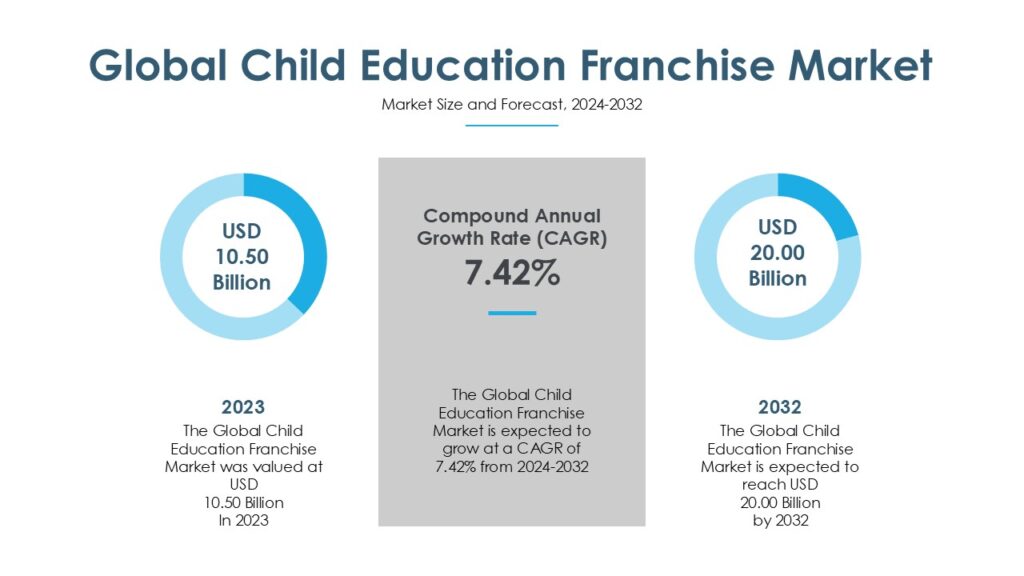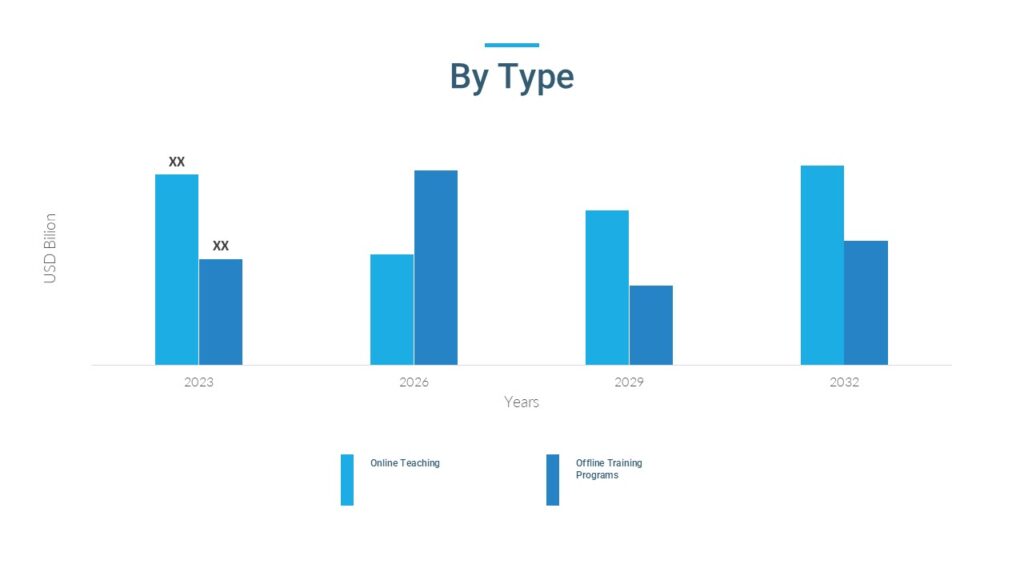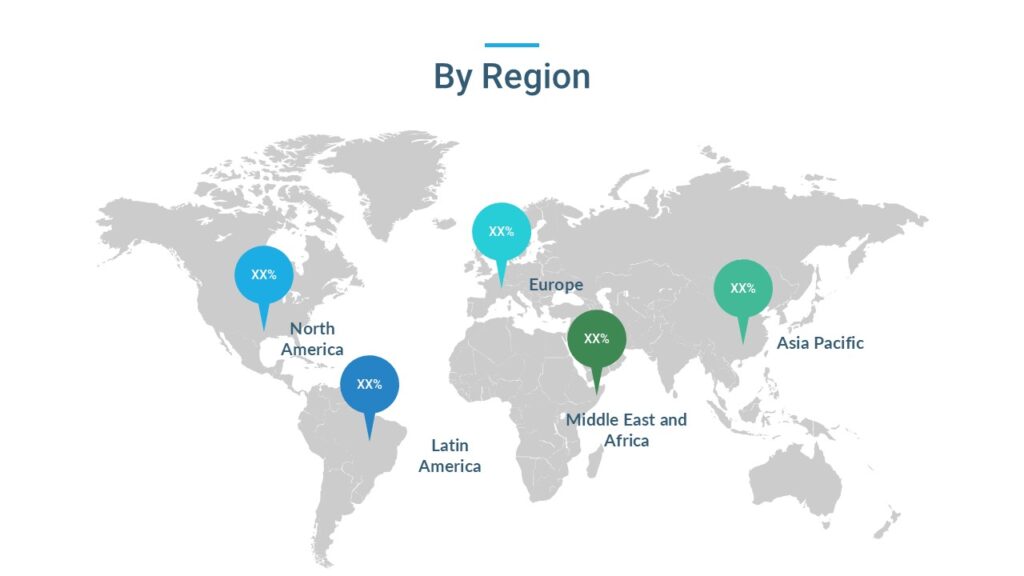
Global Child Education Franchise Market "(By Type: Online Teaching, Offline Training Class; By Application: Community, Family, School; By Region: North America, Europe, Asia Pacific, Latin America, and Middle East and Africa)”- Global Industry Analysis, Size, Share, Growth, Trends, And Forecast, 2024-2032
- Category: ICT, Automation and Semiconductor
- Report ID: CMR33800
- Published Date:
A prominent research firm, Cognizance Market Research added a cutting-edge industry report on the “Global Child Education Franchise Market”. The report studies the current and past growth trends and opportunities for the market to gain valuable insights during the forecast period from 2023 to 2032.
Global Child Education Franchise Market Analysis:
According to cognizance market research, the Global Child Education Franchise Market was valued at US$ 10.50 Billion in 2023 and is anticipated to reach US$ 20.0 Billion by the end of 2032 with a CAGR of 7.42% from 2023 to 2032.

What is the Global Child Education Franchise Market?
In today’s rapidly growing world, parents seek avenues that offer their children holistic and diverse educational experiences. While mainstream education provides the foundation, children thrive when exposed to supplementary subjects such as art, music, technology, and sports.
The child education franchise industry is witnessing unprecedented growth as the traditional schooling system grapples with its limitations. The need for real-world, in-person tutors is soaring. Parents are not just seeking knowledge for their children, they are seeking meaningful interactions, guidance, mentorship, and experience that prepare their child for a competitive world. The child education franchise includes subjects like math, and science, tech-forward fields such as coding and robotics, or the beautiful world of arts and creativity.
Growing consumer awareness of education and environmental sustainability is fueling the adoption of child education franchises, as it aligns with the preferences of the parents of the children who require quality education.
Ongoing technological advancements in child education franchises help in providing innovative knowledge to children. As the popularity of STEM education grows and is incorporated into more schools, the need for supplemental learning continues to grow as well. Child education franchises need and are looking for passionate, driven, and excited franchises to help people bring programs to additional communities.
Global Child Education Franchise Market Outlook:
The Global Child Education Franchise Market is anticipated to maintain steady growth, driven by factors such as increasing consumer demand for convenient and demanding child education franchises.
Child Education Franchises are expected to witness expanded growth in community, school, and family. Ongoing advancements in child education franchises, including online learning, and innovative teaching methods, help in providing a better quality education to children.
Sustainability remains a central theme in the child education franchise market, with companies increasingly emphasizing reduced environmental impact in response to evolving consumer preferences.
The industry may witness continued consolidation as a key player explores strategic alliances, mergers, and acquisitions to strengthen their market position, expand their product portfolios, and leverage complementary capabilities. The industry is expected to face ongoing challenges related to regulatory compliance, necessitating continuous adaptation to changing standards and requirements in different regions.
Geographically, North America is the largest market for the Child Education Franchises. The increasingly advanced technologies help in providing quality education to their children. Increasing working parent’s growth requires quality education for their child and child care.
Child Education Franchise, often associated with innovative technologies, is expected to demonstrate resilience to economic fluctuations, providing stability in demand even during challenging economic periods.
Segment Analysis:
According to the type child education franchises are segmented as online teaching and offline training classes. Due to the advancement in technologies the demand for online learning increases. It helps in innovative technologies to teach the students more effectively and give them quality education. It helps in providing education to children from anywhere to any location. Offline training classes are also providing a better quality of knowledge to the children. It requires a certain place to teach the child.

According to the application, the child education franchises are segmented as community, school, and family. There pre-school and after-school are available which provide quality education to the child including overall skills. Nowadays the demand for tutoring and classes increases another than schools, which increases the growth of the child education franchises. The number of working parents growth is increasing and they require quality education and child care.

Geographical Analysis:
North America is the largest market for the Child Education Franchises. Increasing the awareness among the people about the quality of education boosts the growth of the market. The countries in the regions such as the United States, and Canada are also contributing to the growth of the market.
Asia Pacific is a growth market for Child Education Franchises. Increasing the advancement in technology such as E-learning advanced teaching facilities increases the growth of the market. In the European region, more parents are working for which they require quality education and child care franchises for which the adoption of child education franchises increases.

Latin America experiences a growing demand for child education franchises, propelled by urbanization, changing consumer preferences, and an expanding middle class. Middle East & Africa urbanization and a rising demand for convenience drive the adoption of child education franchises. The government in the region also taking initiatives for the growth of child education franchises.
The report offers the revenue of the Global Child Education Franchise Market for the period 2020-2032, considering 2020 to 2022 as a historical year, 2023 as the base year, and 2024 to 2032 as the forecast year. The report also provides the compound annual growth rate (CAGR) for the Global Child Education Franchise Market for the forecast period. The Global Child Education Franchise Market report provides insights and in-depth analysis into developments impacting enterprises and businesses on a regional and global level. The report covers the Global Child Education Franchise Market performance in terms of revenue contribution from several segments and comprises a detailed analysis of key drivers, trends, restraints, and opportunities prompting revenue growth of the Global Child Education Franchise Market.
The report has been prepared after wide-ranging secondary and primary research. Secondary research included internet sources, numerical data from government organizations, trade associations, and websites. Analysts have also employed an amalgamation of bottom-up and top-down approaches to study numerous phenomena in the Global Child Education Franchise Market. Secondary research involved a detailed analysis of significant players’ product portfolios. Literature reviews, press releases, annual reports, white papers, and relevant documents have been also studied to understand the Global Child Education Franchise Market. Primary research involved a great extent of research efforts, wherein experts carried out interviews telephonic as well as questioner-based with industry experts and opinion-makers.
The report includes an executive summary, along with a growth pattern of different segments included in the scope of the study. The Y-o-Y analysis with elaborate market insights has been provided in the report to comprehend the Y-o-Y trends in the Global Child Education Franchise Market. Additionally, the report focuses on altering competitive dynamics in the global market. These indices serve as valued tools for present market players as well as for companies interested in participating in the Global Child Education Franchise Market. The subsequent section of the Global Child Education Franchise Market report highlights the USPs, which include key industry events (product launch, research partnership, acquisition, etc.), technology advancements, pipeline analysis, prevalence data, and regulatory scenarios.
Global Child Education Franchise Market Competitive Landscape:
There are several small and major firms participating in the highly fragmented Global Child Education Franchise Market. The new strategies formed by companies revolve around accuracy and precision. The following are some of the major market participants:
- LightBridge Learning
- Sylvan Learning
- Lyricos Learning
- Huntington Learning Center
- Kumon North America
- Mad Science Group
- Mathnasium
- Goddard Systems
- Tutor Doctor
- Engineering for Kids
- CompuChild
- Helen Doron
- SmartyKids
- Core Education & Fine Arts
- Whole Child Learning Company
- I-Kidsm Above Grade Level
- Academy for Mathematics & English
- Academy of Learning Career College
- Aloha Mind Math
- Arcadia Academy of Music
- Beyond the Classroom
- Evergreen College
- Eye Level
- Inspiration Learning Center
- Learning Jungle School
- Megamind
- Oxford Learning Centres
- Sandler Training
The report explores the competitive scenario of the Global Child Education Franchise Market. Major players working in the Global Child Education Franchise Market have been named and profiled for their unique commercial attributes. Company overview (company description, product portfolio, geographic presence, employee strength, Key management, etc.), financials, SWOT analysis, recent developments, and key strategies are some of the features of companies profiled in the Global Child Education Franchise Market report.
Segmentation:
Global Child Education Franchise Market, By Type:
- Online Teaching
- Offline Training Class
Global Child Education Franchise Market, By Application:
- Community
- Family
- School
Global Child Education Franchise Market, by Region:
- North America
- U.S.
- Canada
- Europe
- Germany
- U.K.
- France
- Spain
- Italy
- Rest of Europe
- Asia Pacific
- Japan
- China
- India
- Australia & New Zealand
- South Korea
- Rest of Asia Pacific
- Latin America
- Brazil
- Mexico
- Rest of Latin America
- Middle East & Africa
- GCC
- South Africa
- Rest of the Middle East & Africa
Research Methodology: Aspects
Market research is a crucial tool for organizations aiming to navigate the dynamic landscape of customer preferences, business trends, and competitive landscapes. At Cognizance Market Research, acknowledging the importance of robust research methodologies is vital to delivering actionable insights to our clientele. The significance of such methodologies lies in their capability to offer clarity in complexity, guiding strategic management with realistic evidence rather than speculation. Our clientele seek insights that excel superficial observations, reaching deep into the details of consumer behaviours, market dynamics, and evolving opportunities. These insights serve as the basis upon which businesses craft tailored approaches, optimize product offerings, and gain a competitive edge in an ever-growing marketplace.
The frequency of information updates is a cornerstone of our commitment to providing timely, relevant, and accurate insights. Cognizance Market Research adheres to a rigorous schedule of data collection, analysis, and distribution to ensure that our reports reflect the most current market realities. This proactive approach enables our clients to stay ahead of the curve, capitalize on emerging trends, and mitigate risks associated with outdated information.
Our research process is characterized by meticulous attention to detail and methodological rigor. It begins with a comprehensive understanding of client objectives, industry dynamics, and research scope. Leveraging a combination of primary and secondary research methodologies, we gather data from diverse sources including surveys, interviews, industry reports, and proprietary databases. Rigorous data analysis techniques are then employed to derive meaningful insights, identify patterns, and uncover actionable recommendations. Throughout the process, we remain vigilant in upholding the highest standards of data integrity, ensuring that our findings are robust, reliable, and actionable.
Key phases involved in in our research process are mentioned below:

Understanding Clients’ Objectives:
Extensive Discussions and Consultations:
- We initiate in-depth discussions and consultations with our clients to gain a comprehensive understanding of their objectives. This involves actively listening to their needs, concerns, and aspirations regarding the research project.
- Through these interactions, we aim to uncover the underlying motivations driving their research requirements and the specific outcomes they hope to achieve.
Industry and Market Segment Analysis:
- We invest time and effort in comprehensively understanding our clients’ industry and market segment. This involves conducting thorough research into market trends, competitive dynamics, regulatory frameworks, and emerging opportunities or threats.
- By acquiring a deep understanding of the broader industry landscape, we can provide context-rich insights that resonate with our clients’ strategic objectives.
Target Audience Understanding:
- We analyze our clients’ target audience demographics, behaviors, preferences, and needs to align our research efforts with their consumer-centric objectives. This entails segmenting the audience based on various criteria such as age, gender, income level, geographic location, and psychographic factors.
- By understanding the nuances of the target audience, we can tailor our research methodologies to gather relevant data that illuminates consumer perceptions, attitudes, and purchase intent.

Identifying Challenges and Opportunities:
- We proactively identify the challenges and opportunities facing our clients within their respective industries. This involves conducting SWOT (Strengths, Weaknesses, Opportunities, Threats) analyses and competitive benchmarking exercises.
- By identifying potential obstacles and growth drivers, we can provide strategic recommendations that help our clients navigate complexities and capitalize on emerging opportunities effectively.
Grasping Specific Goals:
- We delve into the intricacies of our clients’ objectives to gain clarity on the specific goals they aim to accomplish through the research. This entails understanding their desired outcomes, such as market expansion, product development, or competitive analysis.
- By gaining a nuanced understanding of our clients’ goals, we can tailor our research approach to address their unique challenges and opportunities effectively.
Data Collection:

Primary Research Process:
- Surveys: We design and administer surveys tailored to capture specific information relevant to our clients’ objectives. This may involve employing various survey methodologies, such as online, telephone, or face-to-face interviews, to reach target audiences effectively.
- Interviews: We conduct structured or semi-structured interviews with key stakeholders, industry experts, or target consumers to gather in-depth insights and perspectives on relevant topics. These interviews allow us to probe deeper into specific issues and uncover valuable qualitative data.
- Focus Groups: We organize focus group discussions with carefully selected participants to facilitate interactive discussions and gather collective opinions, attitudes, and preferences. This qualitative research method provides rich contextual insights into consumer behaviors and perceptions.
- Observations: We conduct observational research by directly observing consumer behaviors, interactions, and experiences in real-world settings. This method enables us to gather objective data on consumer actions and reactions without relying on self-reported information.
Secondary Research Process:
- Literature Review: We conduct comprehensive literature reviews to identify existing studies, academic articles, and industry reports relevant to the research topic. This helps us gain insights into previous research findings, theoretical frameworks, and best practices.
- Industry Reports: We analyze industry reports published by reputable trade associations (whitepapers, research studies, etc.), and government agencies (U.S. Census Bureau, Bureau of Labor Statistics, and Securities and Exchange Commission etc.) to obtain macro-level insights into market trends, competitive landscapes, and industry dynamics.
- Government Publications: We review government publications, such as economic reports, regulatory documents, and statistical databases, to gather relevant data on demographics, market size, consumer spending patterns, and regulatory frameworks.
- Online Databases: We leverage online databases, such as industry portals, and academic repositories (PubMed Central (PMC), ScienceDirect, SSRN (Social Science Research Network), Directory of Open Access Journals (DOAJ), NCBI, etc.), to access a wide range of secondary data sources, including market statistics, financial data, and industry analyses.


Data Analysis:
The data analysis phase serves as a critical juncture where raw data is transformed into actionable insights that inform strategic decision-making. Through the utilization of analytical methods such as statistical analysis and qualitative techniques like thematic coding, we uncover patterns, correlations, and trends within the data. By ensuring the integrity and validity of our findings, we strive to provide clients with accurate and reliable insights that accurately reflect the realities of the market landscape.

Transformation of Raw Data:
- Upon collecting the necessary data, we transition into the data analysis phase, where raw data is processed and transformed into actionable insights. This involves organizing, cleaning, and structuring the data to prepare it for analysis.
Utilization of Analytical Methods:
- Depending on the research objectives, we employ a diverse range of analytical methods to extract meaningful insights from the data. These methods include statistical analysis, trend analysis, regression analysis, and qualitative coding.
Statistical Analysis:
- Statistical tools are instrumental in uncovering patterns, correlations, and trends within the data. By applying statistical techniques such as descriptive statistics, hypothesis testing, and multivariate analysis, we can discern relationships and derive valuable insights.
Qualitative Analysis Techniques:
- In addition to quantitative analysis, we leverage qualitative analysis techniques to gain deeper insights from qualitative data sources such as interviews or open-ended survey responses. One such technique is thematic coding, which involves systematically categorizing and interpreting themes or patterns within qualitative data.
Integrity and Validity Maintenance:
- Throughout the analysis process, we maintain a steadfast commitment to upholding the integrity and validity of our findings. This entails rigorous adherence to established methodologies, transparency in data handling, and thorough validation of analytical outcomes.
Data Validation:
The final phase of our research methodology is data validation, which is essential for ensuring the reliability and credibility of our findings. Validation involves scrutinizing the collected data to identify any inconsistencies, errors, or biases that may have crept in during the research process. We employ various validation techniques, including cross-referencing data from multiple sources, conducting validity checks on survey instruments, and seeking feedback from independent experts or peer reviewers. Additionally, we leverage internal quality assurance protocols to verify the accuracy and integrity of our analysis. By subjecting our findings to rigorous validation procedures, we instill confidence in our clients that the insights they receive are robust, reliable, and trustworthy.

Importance of Data Validation:
- Data validation is the final phase of the research methodology, crucial for ensuring the reliability and credibility of the findings. It involves a systematic process of reviewing and verifying the collected data to detect any inconsistencies, errors, or biases.
Scrutiny of Collected Data:
- The validation process begins with a thorough scrutiny of the collected data to identify any discrepancies or anomalies. This entails comparing data points, checking for outliers, and verifying the accuracy of data entries against the original sources.
Validation Techniques:
- Various validation techniques are employed to ensure the accuracy and integrity of the data. These include cross-referencing data from multiple sources to corroborate findings, conducting validity checks on survey instruments to assess the reliability of responses, and seeking feedback from independent experts or peer reviewers to validate the interpretation of results.
Internal Quality Assurance Protocols:
- In addition to external validation measures, internal quality assurance protocols are implemented to further validate the accuracy of the analysis. This may involve conducting internal audits, peer reviews, or data validation checks to ensure that the research process adheres to established standards and guidelines.
Report Scope:
Attribute
Description
Market Size
US$ 20.0 Billion (2032)
Compound Annual Growth Rate (CAGR)
7.42%
Base Year
2023
Forecast Period
2024-2032
Forecast Units
Value (US$ Billion)
Report Coverage
Revenue Forecast, Competitive Landscape, Growth Factors, and Trends
Geographies Covered
North America, Europe, Asia Pacific, Latin America, Middle East & Africa
Countries Covered
U.S., Canada, Germany, U.K., France, Spain, Italy, Rest of Europe, Japan, China, India, Australia & New Zealand, South Korea, Rest of Asia Pacific, Brazil, Mexico, Rest of Latin America, GCC, South Africa, Rest of Middle East & Africa
Key Companies Profiled
LightBridge Learning, Sylvan Learning, Lyricos Learning, Huntington Learning Center, Kumon North America, Mad Science Group, Mathnasium, Goddard Systems, Tutor Doctor, Engineering for Kids, CompuChild, Helen Doron, SmartyKids, Core Education & Fine Arts, Whole Child Learning Company, Dr. I-Kidsm Above Grade Level, Academy for Mathematics & English, Academy of Learning Career College, Aloha Mind Math, Arcadia Academy of Music, Beyond the Classroom, Evergreen College, Eye Level, Inspiration Learning Center, Learning Jungle School, Megamind, Oxford Learning Centres, and Sandler Training
Key Questions Answered in Child Education Franchise Market Report
How big was the Global Child Education Franchise Market in 2023?
It was Valued at US$ 10.50 Billion in 2023.
How big will be the industry size in 2032?
It is projected to reach more than US$ 20.0 Billion by 2032.
What will be the CAGR during the forecast period?
It is anticipated to be 7.42% from 2024 to 2032.
What are the trends, drivers, opportunities, and challenges in the Global Child Education Franchise Market?
Trend: Technological advancement and, focus on science, math, technology, and engineering increases the growth of the market.
Driver: increasing demand for the quality of education, working parent’s growth increase the adoption of child education franchises.
Opportunities: Expansion of franchises, strategic partnership, and collaboration, and expansion of market increase the opportunities of the market.
Challenges: competition from other players in the market, economic fluctuation, and teacher recruitment are some challenges of the market.
What are the major players operating in the Global Child Education Franchise Market?
LightBridge Learning, Sylvan Learning, Lyricos Learning, Huntington Learning Center, Kumon North America, Mad Science Group, Mathnasium, Goddard Systems, Tutor Doctor, Engineering for Kids, CompuChild, Helen Doron, SmartyKids, Core Education & Fine Arts, Whole Child Learning Company, Dr. I-Kidsm Above Grade Level, Academy for Mathematics & English, Academy of Learning Career College, Aloha Mind Math, Arcadia Academy of Music, Beyond the Classroom, Evergreen College, Eye Level, Inspiration Learning Center, Learning Jungle School, Megamind, Oxford Learning Centres, and Sandler Training.
We can customize every report – free of charge – including purchasing stand-alone sections or country-level reports
We help clients to procure the report or sections of the report at their budgeted price. Kindly click on the below to avail



